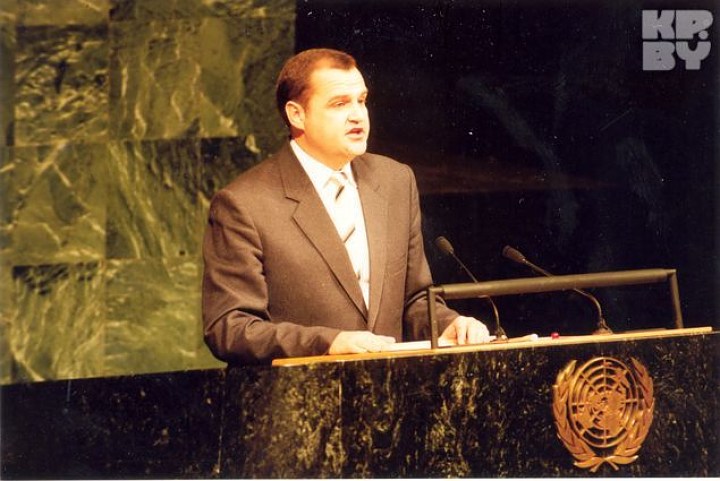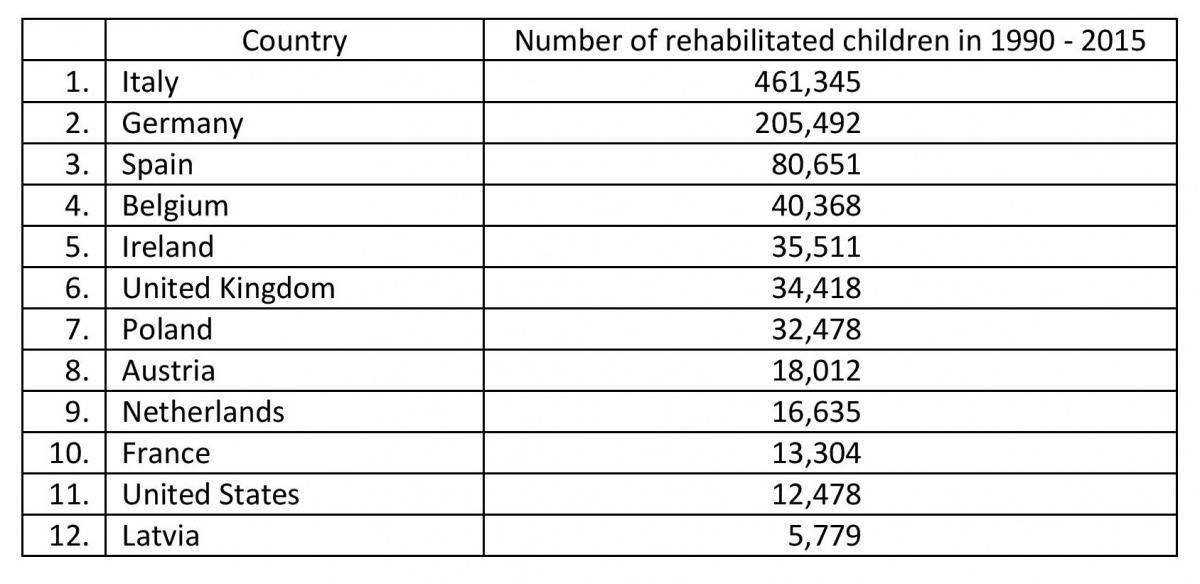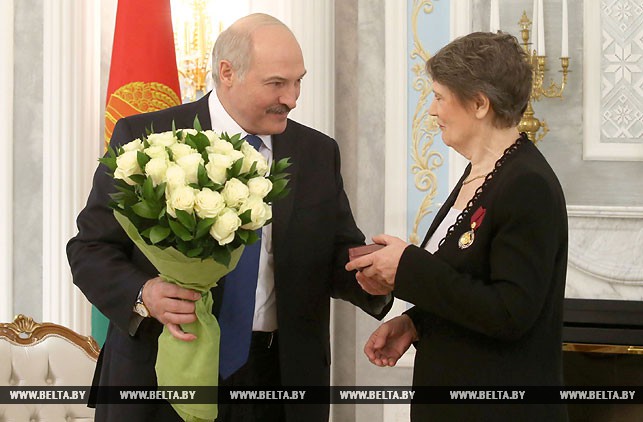Chernobyl as Belarus’ foreign policy priority

Tapestry "Chernobyl", a gift from Belarus to the United Nations
On 25-26 April, Minsk hosts an international conference titled Thirty Years after Chernobyl: From Emergency to Revival and Sustainable Socio-Economic Development of Affected Territories.
UN Secretary-General Ban Ki-moon dispatched his deputy Helen Clark, the United Nations Development Programme (UNDP) Administrator, to attend the event.
After several years backstage, Chernobyl has returned to the list of Belarus' foreign policy priorities. Is this a long-term trend or are Belarusian diplomats seizing the moment to preserve the flow of foreign assistance to the affected areas in a changing international environment?
International assistance to Belarus: mostly of Western origin
Belarus remains the country most affected by the Chernobyl disaster of 26 April 1986, which took a heavy toll on the economy, society and health of the population.
 The United Nations adopted its first resolutions on Chernobyl only in 1990, when the Soviet Union was on the verge of breakup. This decision helped to jump-start numerous assistance programmes by several UN agencies and international organisations.
The United Nations adopted its first resolutions on Chernobyl only in 1990, when the Soviet Union was on the verge of breakup. This decision helped to jump-start numerous assistance programmes by several UN agencies and international organisations.
Initially, the international community assisted Belarus in mitigating the consequences of the disaster in the framework of the International Atomic Energy Agency (IAEA)’s technical cooperation programme, the UNDP’s country programme.
Belarus also worked with dedicated programmes and projects implemented by the World Health Organisation (WHO), United Nations Educational, Scientific and Cultural Organisation (UNESCO), United Nations Industrial Development Organisation (UNIDO), United Nations Children's Emergency Fund (UNICEF) and the European Union.
In 2007, the UN General Assembly proclaimed the third decade after the Chernobyl disaster, 2006–2016, the Decade of Recovery and Sustainable Development of the Affected Regions. Belarus continued to receive multilateral and bilateral Chernobyl-related assistance through almost two dozen national and regional projects (with budgets varying between a few thousands and millions of dollars).
Altogether, in 1990-2015 Belarus attracted over $83.5m in foreign aid from government sources for mitigating the consequences of the Chernobyl disaster. The bulk of assistance came from Western nations, mostly NATO and EU members but also Japan, China and Russia. UNDP and the IAEA remained the main institutional sponsors.
Large-scale aid from foreign NGOs and families
In the same period, charitable assistance from foreign donors to the affected areas of Belarus amounted to over $400m. About 30 per cent of this came in kind and the rest in monetary form. The humanitarian response was enormous. The government quickly introduced numerous regulations in an attempt to control this flow.
For Belarusian society, health care rehabilitation of Belarusian children abroad remains the best known form of foreign assistance in Chernobyl-related matters. From 1990 to 2015, over thirty countries received about one million Belarusian children. Italy accepted almost half of them.
 Since 2004, the number of children received by foreign countries has been gradually decreasing. This may be explained by President Alexander Lukashenka’s decision to allow rehabilitation only in those countries which have signed bilateral agreements with Belarus on this matter. As of today, 14 European countries meet this criteria. In 2015, about 16,500 children were rehabilitated in twelve countries.
Since 2004, the number of children received by foreign countries has been gradually decreasing. This may be explained by President Alexander Lukashenka’s decision to allow rehabilitation only in those countries which have signed bilateral agreements with Belarus on this matter. As of today, 14 European countries meet this criteria. In 2015, about 16,500 children were rehabilitated in twelve countries.
Chernobyl in Belarus’ foreign policy agenda
In the 1990s and the early 2000s, the Chernobyl issue remained at the top of Belarusian diplomats’ daily agenda. They used multilateral events and bilateral meetings to highlight the gravity of the problems which the country faced and the need for large-scale international assistance.
However, over the last few years Chernobyl has begun moving down the list of the country’s foreign policy priorities. In 2005, Lukashenka, speaking at the 60th session of the UN General Assembly, failed to mention Chernobyl for the first time ever. Speaking from the same rostrum ten years later, he referred to the disaster only in passing.
There may a number of reasons behind this downgrade.
First, the international community and donors have shifted their attention to new emerging priorities such as the financial crisis, climate change, and migration. If initially the UN General Assembly discussed the international response to the Chernobyl disaster annually, in 1993, mentions of the issue passed to a biennial, and in 2007 to a triennial, basis.
Second, some in the Belarusian government felt that too much international attention to Chernobyl might hamper the country’s efforts in promoting its exports and attracting foreign investment to Belarus because of the (mostly unjustified) fear of radioactive contamination.
Third, after years of doubts and internal debate, in the mid-2000s the Belarusian authorities decided to build a nuclear power plant in Belarus. The previous level of attention to the Chernobyl issue could have undermined the government’s newly adopted policy of pursuing nuclear energy.
The 30th anniversary and revamped Chernobyl diplomacy
Nevertheless, the Belarusian government would not think of missing the opportunity provided by the 30th anniversary of the disaster to secure continued international assistance to the affected areas. The current Chernobyl decade is about to expire. Without a new international framework, further foreign funding will become uncoordinated and scarce.
 The Thirty Years after Chernobyl conference as well as the commemorative meeting of the UN General Assembly on 26 April are being used to raise global awareness of today’s needs and formulate new priorities and projects to address them.
The Thirty Years after Chernobyl conference as well as the commemorative meeting of the UN General Assembly on 26 April are being used to raise global awareness of today’s needs and formulate new priorities and projects to address them.
In the last decade, the international response to the Chernobyl disaster has shifted conclusively from emergency relief and humanitarian assistance to capacity-building and sustainable development of the affected regions and communities.
Today, Belarusian diplomats are seeking to inscribe international Chernobyl-related activities in a broader context of UN efforts on social development. On 11 April, deputy foreign minister Valentin Rybakov, speaking at a meeting of the UN Inter-Agency Task Force on Chernobyl in New York, promoted the Belarusian formula for the new Chernobyl framework of action as “Achieving Social Development Goals in the affected regions through partnership, innovation and investment”.
The Belarusian foreign ministry has also been emphasising the change in the country’s status with regards to Chernobyl-related activities – from a net recipient of foreign assistance to an equal partner of the international community. Belarus is offering to share its unique knowledge and experience in recovering from the consequences of a nuclear disaster, and best practises in moving from recovery to development.
The treatment of the Chernobyl issue in Belarus’ foreign policy is an example of good-quality diplomacy. When fighting for resources, Belarusian diplomats have learned to adapt their actions and rhetoric to modern trends and the new vocabulary of multilateral relations.




 On 12 April, Talaka users pledged financial support to Vital Hurkou's trip to the Muaythai World Championship, scheduled for May 2016 in Sweden. The Belarusian Ministry of Sport refused to finance Hurkou's trip, even though he is a leading national and world athlete in Muaythai. Officials appeared to be unhappy about his involvement in the rock band Brutto, known for its government-critical positions.
On 12 April, Talaka users pledged financial support to Vital Hurkou's trip to the Muaythai World Championship, scheduled for May 2016 in Sweden. The Belarusian Ministry of Sport refused to finance Hurkou's trip, even though he is a leading national and world athlete in Muaythai. Officials appeared to be unhappy about his involvement in the rock band Brutto, known for its government-critical positions. MaeSens (in English:“It makes sense”) started in October 2011 in Minsk. It operates on a slightly different principle to Talakosht and Ulej, defining its mission as a unique combination of social networking with electronic auctions.
MaeSens (in English:“It makes sense”) started in October 2011 in Minsk. It operates on a slightly different principle to Talakosht and Ulej, defining its mission as a unique combination of social networking with electronic auctions.
